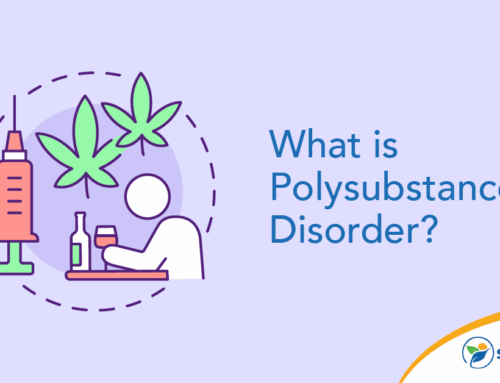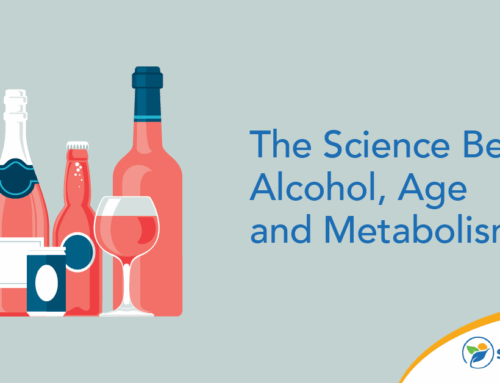When you hear the term alcoholic, you may imagine a person who can’t hold down a job and spends all day drinking. However, many people with an alcohol addiction will go to great lengths to hide their drinking habits from their loved ones. They may even have a successful career and stable home life. Research shows 20% of alcoholics are highly functional, well-educated and earn good incomes. Closet drinking may not be as visible, but it’s still harmful.
If you’re worried a loved one may have an alcohol addiction, explore the closet drinker meaning and how you can help.
Signs of a Closet Alcoholic
What is a closet drinker? Closeted drinking, or high-functioning alcoholism, refers to a person who hides their alcohol consumption from others. Closeted drinkers don’t normally fit the stereotypes associated with alcoholics. They may be well-educated, have steady and lucrative jobs and maintain relationships. They’re also more likely to hide their drinking habits out of shame or because they don’t want to admit they have a problem.
Closeted drinkers try hard to keep their secret, but there are a few signs to look for if you’re worried about a loved one.
Finding Hidden Bottles or Cans Around the House
Closeted drinkers may stash bottles or cans of alcohol in unusual places around the house, such as in the bathroom or garage, to hide how much they’re consuming. They may also hide empty bottles or cans in odd places, including their car, to dispose of them in secret away from the house.
Disappearing for Long Periods of Time at Social Events
Whether it’s at a large party or small gathering, if you notice your loved one frequently slipping away from the group, they may be finding a quiet place to indulge their addiction. They may turn others down or make excuses if someone tries to follow them and return to the group more visibly drunk than they were before. It can be helpful to track how many times your loved one disappears at an event to determine the severity of their alcohol use.
Putting Alcohol in Other Containers
Your loved one may disguise their alcohol by putting it in other containers, such as a water bottle or coffee cup. They may be doing this because they don’t want others to know they’re drinking or because they’re unwilling to travel without having alcohol on hand. Either way, disguising alcohol is a clear sign of closet drinking.
Chewing Gum or Using Mouthwash Frequently
If your loved one is frequently chewing gum, brushing their teeth or using mouthwash, they may be trying to mask the smell of alcohol on their breath. Heavy use of perfume or cologne is another method used to hide any lingering odors.
How Closet Drinking Affects Relationships
Alcoholism can strain or destroy a person’s relationships with others. Even if someone is hiding their drinking because they don’t want it to cause problems, alcohol isn’t free. As someone builds up a physical tolerance, they may purchase larger quantities and spend more money to fuel their addiction. This can cause financial troubles if they share a home and bills with others.
Alcohol also heavily impacts mood. Because alcohol is a depressant, it can disrupt neurotransmitters in the brain, affecting your feelings, thoughts or behaviors. Your loved one may feel more relaxed and confident while they’re drinking, but after the effects wear off, they may experience anger, depression or anxiety. These feelings can make them withdraw or self-isolate and negatively impact their relationships with family members, friends or colleagues.
Approaching a Loved One About Closet Drinking
If your loved one’s closet drinking is taking a toll on their health and relationships, it may be time to consider having a conversation with them. The thought of approaching them directly might seem challenging, but writing down talking points can help you formulate your ideas and make the discussion more productive.
Here are a few tips for approaching a loved one about their drinking habits:
- Avoid using stereotypical labels. Refrain from calling your loved one an “addict” or “alcoholic.” These terms can be hurtful and cause them to become defensive and less open to talking.
- Focus on your loved one’s drinking. Rather than making statements about your loved one personally, direct the focus to their addiction and how you’ve noticed it’s affecting their life. Use “I” statements, such as, “I’m concerned about your alcohol use.” These come off as less accusatory.
- Express concern for their well-being. Use “I” statements again to address any negative behaviors you’ve observed in your loved one linked to their alcohol use. For example, you can mention how you’ve noticed they’ve been spending more time sleeping and less time engaging in activities they enjoy.
- Be empathetic and understanding. If your loved one feels like you’re judging or blaming them for their alcohol use, they may shut down. Maintaining an empathetic and understanding tone will help them feel comfortable around you and more likely to consider your point of view, especially if professional treatment is mentioned.
Self-Care for Family and Friends of Closet Drinkers
Although you may be willing to do whatever it takes to help your loved one, it’s also important to prioritize your own health and well-being. If you start feeling too burnt out, stressed or overwhelmed by your loved one’s behavior, consider counseling or therapy to process your own emotions and feelings about the situation.
Support groups, such as Al-Anon, are also available to help loved ones of people with an alcohol use disorder seek support and build community with others in similar situations. These resources can help you set healthy boundaries and learn new coping skills to ease any mental health issues you may be struggling with and stay in touch with your personal needs.
Resources for Getting Help and Support
If your loved one’s closet drinking is impacting your relationship, several resources are available, such as family therapy and alcohol abuse treatment. Sunlight Recovery offers a range of services designed to treat alcohol addiction, including detox, residential treatment, outpatient care and various therapies. Contact us today to learn how we can help your loved one overcome their addiction and lead a more fulfilling life.







